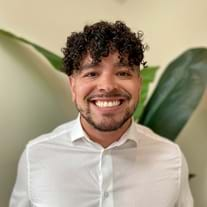
Thiago Arzua, PhD
2023 Leon Levy Scholar
Columbia University
Sub-disciplinary Category
Systems Neuroscience
Previous Positions
- BA, University of South Florida
- PhD, Medical College of Wisconsin (Advisor: Dr. Xiaowen Bai)
Bio
Born and raised in Brazil, Dr. Thiago Arzua is currently a neuroscientist at Columbia University’s Zuckerman Institute. He currently studies how traumatic experiences are passed down through multiple generations. Before that, he completed his Ph.D. in neuroscience at the Medical College of Wisconsin, where he used stem-cell derived brain organoids to study neurodevelopment. Outside the lab, Dr. Arzua also engages and fights for diversity and equity within science, being a co-founder of Black In Neuro, as well as a science policy ambassador for the Society for Neuroscience. As an early-career researcher, he has won multiple awards, including the NIH’s Outstanding Scholars in Neuroscience Award, and being nominated 30 Under 30 by Forbes Magazine.
Research Summary
How information about stressful events is encoded in the brain and how it can be passed through generations.
Technical Overview
The ability to detect and respond to threat is critical for survival and human brains are wired to quickly and efficiently adapt. However, after exposure to traumatic or highly stressful experiences, these neural circuits can often become maladaptive, leading to psychiatric disorders like post-traumatic stress disorder, panic disorder, and generalized anxiety— disorders that are becoming increasingly common in children and adolescents. Dr. Thiago Arzua aims to examine trauma and anxiety from a developmental perspective by examining noradrenaline/norepinephrine modulation resulting from traumatic olfactory experiences in mice and how they change the representations of odors at the levels of circuitry, electrophysiology, and modulation. He will also determine how this trauma-induced plasticity differs in the presence or absence of the mother and the transmission of these traumatic olfactory experiences through generations. His research program will inform how our brains encode traumatic experiences, with specific implications for the effects of traumatic experiences early in life, like suffering abuse or neglect from a parent, as well as broader implications for treatment of anxiety in children and adults that may originate from ancestral trauma and stress.